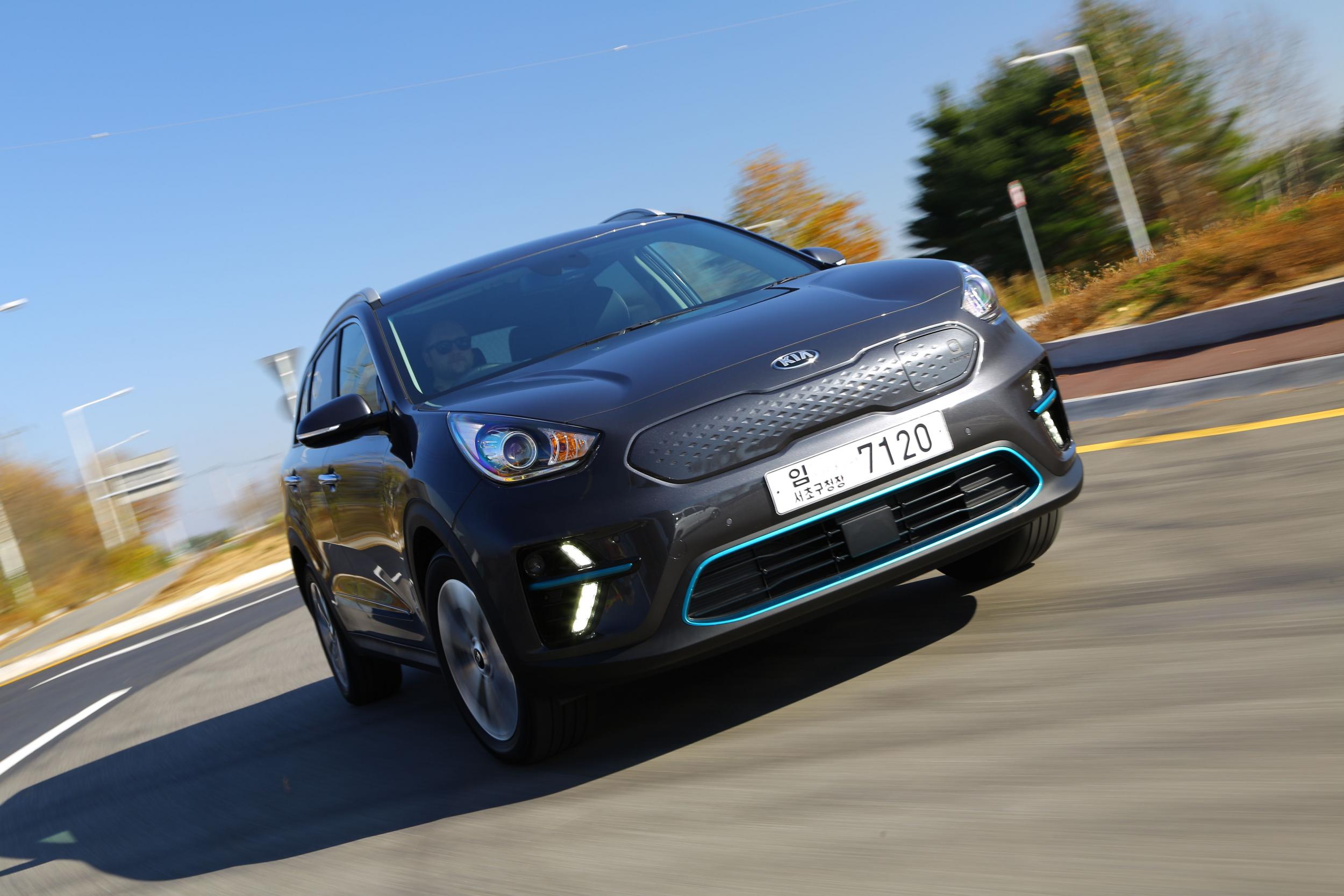Electric cars travel three times as far as fossil-fuel counterparts for same price
Petrol and diesel are being left way behind when it comes to efficiency

Your support helps us to tell the story
From reproductive rights to climate change to Big Tech, The Independent is on the ground when the story is developing. Whether it's investigating the financials of Elon Musk's pro-Trump PAC or producing our latest documentary, 'The A Word', which shines a light on the American women fighting for reproductive rights, we know how important it is to parse out the facts from the messaging.
At such a critical moment in US history, we need reporters on the ground. Your donation allows us to keep sending journalists to speak to both sides of the story.
The Independent is trusted by Americans across the entire political spectrum. And unlike many other quality news outlets, we choose not to lock Americans out of our reporting and analysis with paywalls. We believe quality journalism should be available to everyone, paid for by those who can afford it.
Your support makes all the difference.Electric cars travel up to three times the distance of their petrol or diesel rivals for the same amount of money, according to a new test.
With interest in the vehicles rising, many potential buyers are left confused by the way running costs are explained, with miles per the kilowatt hour (kWh), difficult to compare to miles per gallon.
To help consumers, car reviews and advice website Parkers has developed a way of showing how far your car will go on a single pound - regardless of what fuel it runs on.
The figure reveals how much a car can travel for £1 of petrol, diesel or electricity.
The study found the Kia e-Niro First Edition and the Renault Zoe 65kW are the most efficient models, capable of travelling 33.1 miles per pound (mpp) of electricity.
This is more than three times as far as the most economical version of the Ford Fiesta (9.3mpp), the UK’s best-selling vehicle, when using official testing figures.
With the average UK motorist driving around 7,150 miles per year, they would spend just £216 over a 12 month period if they charged their Kia e-Niro or Renault Zoe from home.
The Tesla Model 3 Standard Range was the third most economical, covering 32.3mpp, while the Volkswagen e-Golf was fourth on 30.8mpp.
Parkers calculated the cost for electric cars based on home charging prices rather than using public charging points, as costs for public charging can vary wildly.
The mpp data is also only available for cars on sale since 2017 and that are also currently available to buy.
For this reason, the Hyundai Kona Electric, which could travel 30.8mpp, does not appear on the list as it is sold out due to high demand.
“We created miles per pound as a way of demystifying the running costs of electric vehicles (EVs) because above and beyond their range, and how long they take to charge, there is little uniformity in how car makers express just how much energy these cars use," said Parkers editor, Keith Adams. “As interest in EVs becomes more widespread, there remains a lot of confusion around running costs but the MPP figure generates a figure that is relatable to anyone.
“In a nutshell, it tells you how much it costs to drive any EV after plugging it up at home and topping it up on domestic electricity. In addition, miles per pound should help drivers who know how many miles they cover in a year to work out up-front fuelling costs, and possibly choose a more expensive electric car over its petrol counterpart.
“Taking fuelling costs into account, monthly costs for internal combustion engine (ICE) cars and electric vehicles (EVs) are much closer than the gap in list price might suggest. On something like a Volkswagen Golf, going electric will save you around £70 per 1,000 miles.
“And interest is rising. People are searching before they buy. Traffic to our Electric Cars section has grown by 80 per cent since the beginning of 2019, and it’s continuing to accelerate strongly.”
The firm based the price of electricity on the cost per kilowatt hour on a domestic tariff, while petrol and diesel is based on the AA Fuel Price Reports.
The mpp metric has been launched as the EV market continues to grow.
According to the Society of Motor Manufacturers and Traders (SMMT), sales of purely electric cars are up by more than 200 per cent in 2019, with the market share increasing from 0.7 per cent to 2.2 per cent.
Mr Adams added: “As range improves, electric cars are becoming a more and more enticing option and the miles per pound tool really drives down how cheap these zero emission vehicles are when you’re on the road. While it’s easy to be put off at the price of an electric car, when you look at it from a monthly costs perspective the prospect is all the more attractive.
“The running costs are low, there is zero road tax and, from next year, zero company car tax, too.”
SWNS
Join our commenting forum
Join thought-provoking conversations, follow other Independent readers and see their replies
Comments